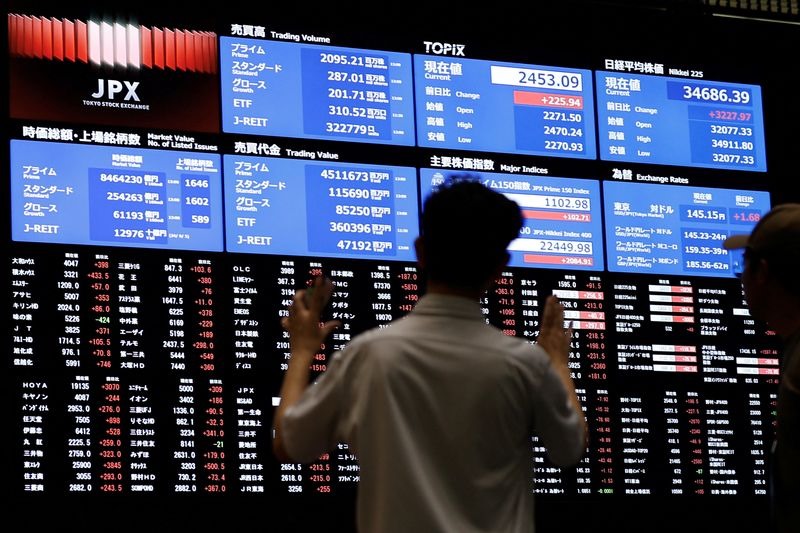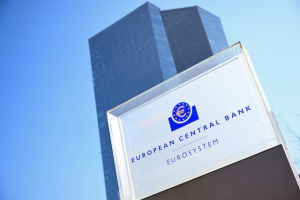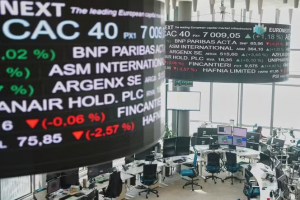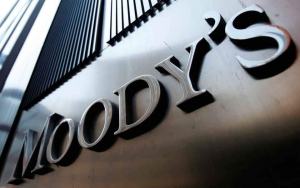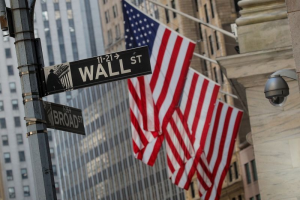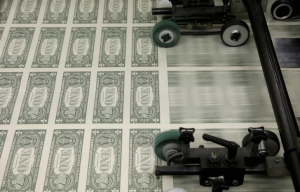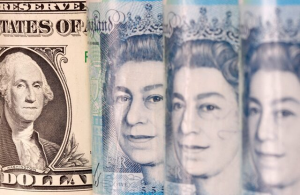Asian stocks slipped and the dollar was perched near a two-year high on Thursday after the U.S. Federal Reserve cautioned it would temper the pace of rate cuts next year, while the yen dipped after the Bank of Japan kept rates steady.
The Fed's hawkish shift sent Wall Street lower and Asian stocks followed suit on Thursday, with MSCI's broadest index of Asia-Pacific shares outside Japan down 1.6%. Tech-heavy Taiwan stocks fell 1.2% and Australian shares slid nearly 2%.
The Dow Jones Industrial Average plunged more than 1,000 points on Wednesday. [.N]
The dour mood is likely to move over to Europe, with Eurostoxx 50 futures down 1.5%, German DAX futures 1.2% lower and FTSE futures sliding 1%.
The yen touched a one-month low of 155.48 per dollar after the BOJ's decision to hold rates, as expected. [FRX/]
The Japanese currency traded around 155.3 to the dollar, near the weaker end of the range it has held this year while under pressure from a strong dollar and a wide interest rate disadvantage.
The yen is down more than 8% in 2024 against the dollar and is set for a fourth straight year of decline.
Investor focus will now be on comments from BOJ Governor Kazuo Ueda to gauge not just the timing of the next rate hike but the extent of hikes next year. Traders are currently pricing in 46 basis points of BOJ hikes by the end of 2025.
Ueda is expected to hold a press conference at 0630 GMT to explain the decision. Board member Naoki Tamura dissented and proposed raising interest rates to 0.5% on the view inflationary risks were building, but his proposal was voted down.
"The hawkish Fed dot plot overnight gave the BOJ an option to increase rates, and there was one dissenting vote for a 25 bps hike, so it looks like rates will be going up early in 2025," said Ben Bennett, Asia-Pacific investment strategist at Legal and General Investment Management.
The policy decisions from the two central banks underscored the challenge facing the global economy as the biggest participant, the United States, comes under President-elect Donald Trump's leadership early in the new year.
Fed Chair Jerome Powell said some officials were contemplating the impact of Trump's plans such as higher tariffs and lower taxes on their policies, while Ueda highlighted Trump's policies as a risk in an interview last month.
"The risks that are clearly inherent here, and left partially unsaid, are what the Trump administration could bring to the table in terms of inflationary pressure," said Rob Thompson, macro rates strategist at RBC Capital Markets.
"If the market decides the Fed's done, whether it's Trump or inflation picks up regardless over the next year, the risk is that we could re-price towards hikes later on. Did this tell us anything? Yeah. The market might still be a bit complacent around some of these risks."
FED JOLTS MARKETS
The Fed cut interest rates on Wednesday as expected, but Powell's explicit references to the need for caution from here on sent markets into a tailspin.
U.S. central bankers now project they will make just two quarter-percentage-point rate reductions by the end of 2025, which is half a percentage point less in easing next year than officials anticipated as of September.

